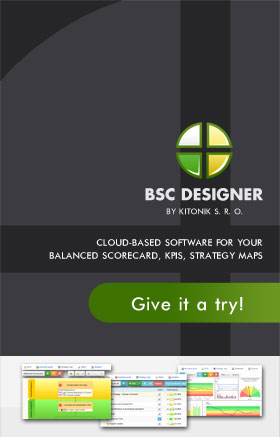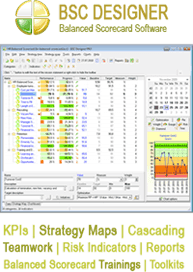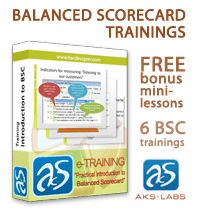Make the Right Decisions with BSC research
There are many sources of preformatted balanced scorecards. They usually give you a rough idea how to systematize and professionalize your operations. Except for companies that are exactly the same – the same products, the same volume of output, the same number of employees, similar physical environment. This means, of course, that building an effective BSC is not just getting one of those preformatted ones and hope that it will work for you. Building a BSC demands the conduct of a BSC research.
What good will research do? Well, you have to have some goal to aim for – just like everybody else. If you are a business entity, you cannot just say that your goal is to earn money. Everybody likes to earn money. So, a goal like that does not differentiate you from anybody else and no way can you motivate or hold employees together with such a goal. Let us say then that in five years you would like to see your company as the number one producer of quality and reusable diapers or condoms. Accomplishing such a goal definitely entails a lot of inputs: technical know-how, marketing (consumer response, competition, if there are any), distribution, machineries and equipment, staffing, employee skills, and competence. Now, that is a whole lot of things that require reliable information before any decision can be made – before you can start to plan what activities you have to engage in, what strategies to employ, what resources are needed, and whom to assign identified tasks. To gather the information needed to support the formulation of a realistic plan, you have to conduct some research about external and internal conditions. Not only that, extensive research is probably also needed to develop the product itself and make it something that the public will crave for.
As you can see, building a balanced scorecard, whose basic contents are described above, is not as easy as it seems. Planning, strategizing, and implementation have to be supported by concrete data. In the course of business operations, you will find out soon enough that a balanced scorecard, which many consider as an excellent management tool for turning goals into realities, is hardly useful when the measures established are the product of pure conjectures and overly-rich imaginations.
The benefits of research are not limited to building scorecards. It can also be used for many more purposes, like researching for management best practices. This can be gathered either from analysis of internal operations or from external sources, to update and enrich balanced scorecards, to develop innovative products, tap new markets and discover more efficient ways to produce products and services.
In the same way that research provides the support for building of functional balanced scorecards for management’s use, balanced scorecards can also be used to develop a relevant agenda. The research may just be a temporary activity but like any other activity, it needs to have blueprints for completion. A balanced scorecard that establishes appropriate measures will serve as a helpful guide for researchers.
Providing accurate information is a fundamental management function. Without accurate information, decisions will be most likely incorrect and you cannot afford to make one too many. You really have to engage in BSC research.
—
If you are interested in BSC Research, check this web-site to learn more about scorecard research.


